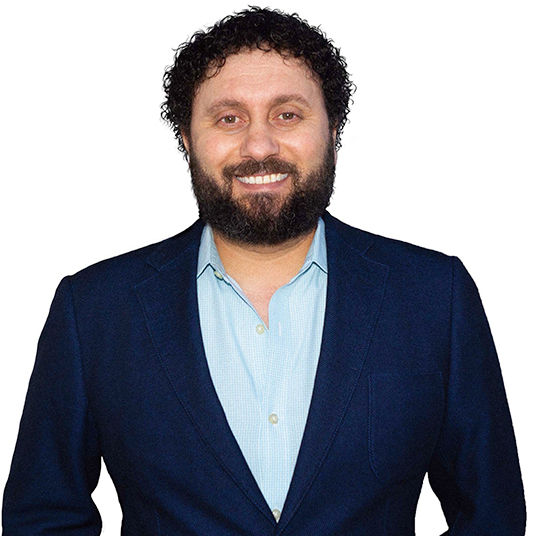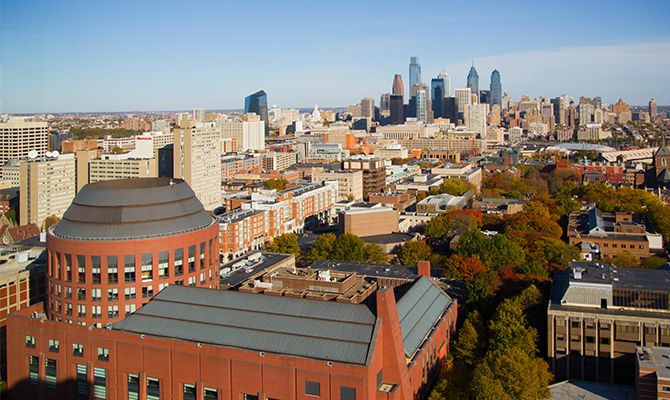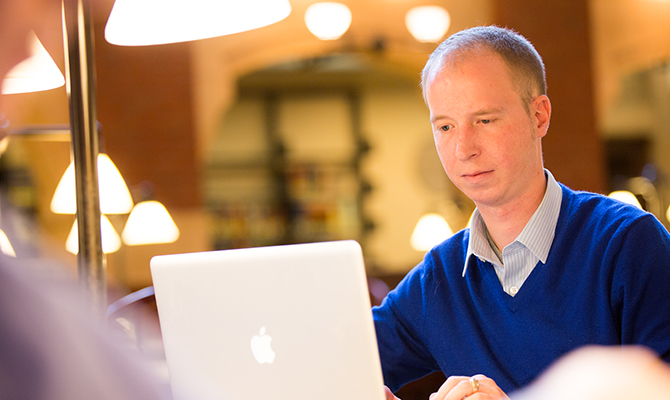
Lecturer of Near Eastern Studies at Princeton University
Master of Philosophy in Liberal Arts, University of Pennsylvania ‘22
Master of Arts in Near and Middle Eastern Studies, The Graduate Center, City University of New York ‘15
Bachelor of Arts in English Language and Translation, Damascus University ‘06
“I consider myself a global citizen,” says Faris Zwirahn (Master of Philosophy in Liberal Arts ’22). “I grew up in Syria, I have family living all over the world, and I spend most of my time traveling.” A Fulbright Scholar, Faris came to the United States to pursue a master’s degree in Near and Middle Eastern Studies. For his thesis, Faris examined letters written in Arabic between Muslim and Christian intellectuals in the Middle Ages; his interdisciplinary research drew from history, sociology, and philosophy to analyze intercultural conflict and exchange between medieval writers. “I studied the Middle East first because that’s where I come from,” he adds, “but most of my interests, politically and economically, tend to be on a larger scale.” The Master of Philosophy in Liberal Arts (MPhil) at the University of Pennsylvania offered Faris the opportunity to expand his intellectual interests to a global perspective.
Faris had begun teaching Arabic classes in Princeton University’s Department of Near Eastern Studies when he decided to enroll in the MPhil; an advanced graduate degree on a part-time schedule offered more flexibility than doctoral studies and greater impact than a non-degree program. “You can take the same number of courses as a graduate certificate and get an actual degree,” he explains. “I put plans for a doctorate on hold while investigating where I want to go next academically, and how I can use that in my career.”
With the ability to choose courses from a wide range of subjects across the University, Faris could expand his expertise from intellectual history to pressing philosophical issues in contemporary global politics. “I wanted all of my training to be in moral justice, mostly global moral justice or distributive justice,” he recalls. “This was a way to explore something larger and apply philosophy to questions related to international relations.” To Faris, the intersection of philosophy and politics was the best vantage point to analyze international affairs. “Before they were put into practice, both domestic and international laws and rules were originally philosophical ideas,” he says. “You have to stop at a red light; that’s the law. But originally, it was a matter of interest. It’s in your interest and your safety to stop until I pass, and it’s in my interest to trust that you will stop until I pass. That’s how we come to decide how to rule our daily lives.”
At Penn, Faris took philosophy courses on subjects such as moral justice, war and peace, and applying classical liberal philosophy to a global context. He also took courses in political science to deepen his understanding of international relations, and a course that took a philosophical approach to the US Constitution. In his courses, Faris met students from China, Germany, and other nations around the world; his classmates also came from a wide range of disciplines and brought different approaches to complex questions of morality and law. For example, many of his classmates in the US Constitution course were Penn Law students; “I tend to dig deep philosophically, but I got to see how someone who was trained technically in law would look at the Constitution,” he says.
Inspired by disparities in access to the COVID-19 vaccines, his MPhil thesis takes vaccine distribution as its focus. “The question I’m trying to answer is: do Western liberal democratic countries have the right to hoard vaccines? Can political institutions, communities, or people justify that morally and politically? And if they can’t, do they have a duty to assist other nations who cannot?” he says. His advisor is a well-known philosopher in global justice. “It is helpful to connect with someone who has such vast knowledge in the field—but not only that. He is a global citizen too,” says Faris. “The professors I worked with at Penn were amazing. We talk as colleagues, not as student and professor.”
“Philosophy is the mother of all sciences,” Faris concludes. “It’s the oldest method of thinking about everything around us. Every decision we make—to buy coffee or tea, to quit a job, to vote for a political trend or certain person—all of these use your reason and philosophical rationale to decide what is the best outcome. In everything from the social sciences to humanities to hard science, you can ask questions and answer them through philosophy.”






